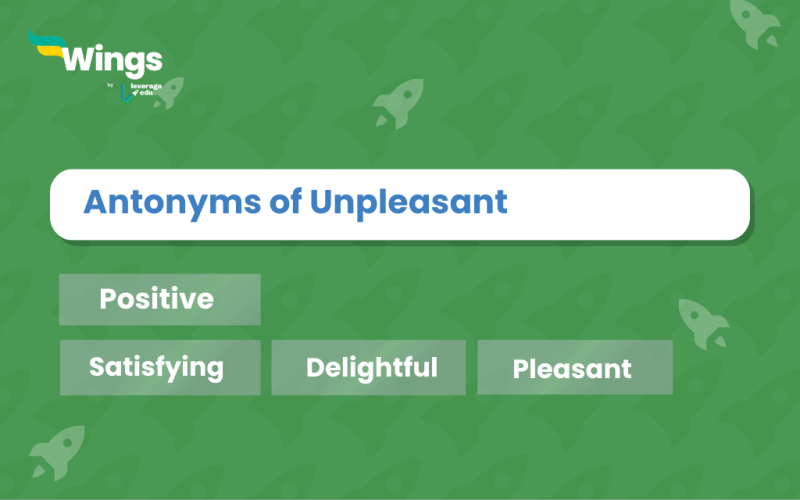Some common antonyms of unpleasant are joyful, pleasurable, positive, wonderful, delightful, and enjoyable. The blog article below will describe everything one needs to know about unpleasant meaning with antonyms and usage with examples.
Meaning of Unpleasant
“Unpleasant” is an adjective used to describe something that is not pleasing, disagreeable, or causing discomfort. It refers to things or experiences that are not enjoyable, often eliciting negative emotions or reactions. When something is described as unpleasant, it typically means that it is not desirable, and it may cause discomfort, annoyance, or displeasure.
Antonyms of Noise, with Meaning and Examples
7+ Unpleasant Antonyms
These antonyms convey the idea of experiences, sensations, or situations that are positive, enjoyable, and pleasing, contrasting with the negative connotations of “unpleasant.”
- Joyful
- Wonderful
- Agreeable
- Positive
- Satisfying
- Positive
- Pleasurable
- Pleasant
- Enjoyable
- Delightful
Antonyms of Manifest, with Meaning and Examples
Usage with Examples
The antonyms (opposites) of “unpleasant” describe things or experiences that are enjoyable, agreeable, or cause positive feelings. Here are some antonyms of “unpleasant” along with sentence examples:
- The garden was filled with delightful flowers and fragrances.
- She had a positive experience during her trip, with nothing but good memories.
- The conversation with her old friend was quite agreeable, filled with laughter and shared stories.
- The weather was so pleasant that they decided to have a picnic in the park.
- The movie was highly enjoyable, and we had a great time watching it.
Unpleasant Antonyms Quiz
Choose the correct antonyms for unpleasant from the options listed below:
- Positive
- Coversation
- Hope
Answer: Positive
This was all about the “unpleasant antonyms” with meaning and examples. Hopefully, you understood the usage of the word. To read more antonym blogs, follow Leverage Edu
 One app for all your study abroad needs
One app for all your study abroad needs














 45,000+ students realised their study abroad dream with us. Take the first step today.
45,000+ students realised their study abroad dream with us. Take the first step today.

